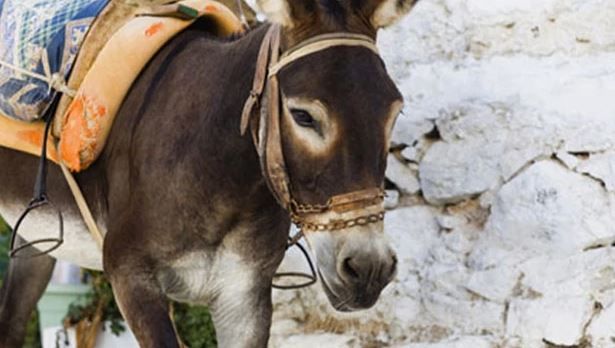In his account of Jesus’ entry into Jerusalem, Mark makes a point of the fact that the donkey was borrowed.
He sends two disciples to a nearby village where they will find a colt.
If anyone questions you, Jesus directs, tell them that “The Master needs it” and assure them it will be returned.
And so Jesus enters Jerusalem, seated on a borrowed donkey, acclaimed by the crowds as the “one who comes in the name of the Lord.”

But what kind of Messiah, what kind of king, makes his grand entrance on a borrowed donkey?
But that is an unbroken thread in the story of Jesus: He was born in a borrowed place and laid in a borrowed manger. As he travelled, he had no place of his own so he spent his nights in a “borrowed” space somewhere. He ate his final meal in a borrowed room. And when he died, his body was placed in a borrowed tomb.
Jesus owns nothing. He possesses nothing. He takes nothing for himself but shares whatever is given him.
His only possession is compassion: love freely given, without limit or condition or expectation.
And such poverty is what he asks of those who would follow him.
Because such poverty is the treasure of the Kingdom of God – a Kingdom built of justice, of mercy, of reconciliation, of peace.
It is that Kingdom of God that Jesus preaches and models and ultimately dies for – on a cross that was borrowed, as well.
St. Paul expresses it beautifully in today’s second reading: Jesus “empties” himself of his very divinity to take on the cross for the sake of God’s beloved but fallen humanity. As we walk with Jesus this Holy Week, may we learn to “empty” ourselves of our egos, our wants and expectations, our possessions, in order to make room in our lives for the simple, liberating love of God and to be that love for others who are crushed under the weight of their own crosses. May we “borrow” from the humble spirit of Jesus, enabling us to build the Kingdom of God in this time and place of ours.